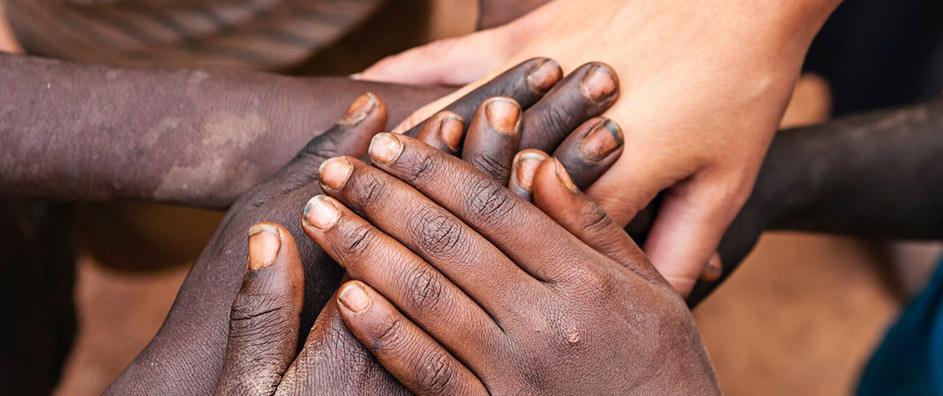In the vast tapestry of human experience, the concept of humility often remains overshadowed by the allure of pride and self-assertion. However, within the framework of Baha’i teachings, humility emerges not merely as an admirable trait but as a transformative power capable of reshaping the dynamics of interpersonal relationships and fortifying community bonds. This article endeavors to elucidate the profound implications of utilizing humility as a conduit for altruism, detailing its potential to facilitate growth, understanding, and collective advancement.
At its essence, humility is the acknowledgment of one’s limitations and the recognition of the inherent worth of others. In a society often predicated on competition and individualism, embracing humility invites a radical shift in perspective. This cultivation of a modest self-view enables individuals to transcend the confines of ego, thereby facilitating a more profound connection with those around them. In the teachings of Baha’u’llah, the founder of the Baha’i Faith, humility is portrayed as a virtue that enhances one’s capacity to serve humanity, aligning with the fundamental tenet that our existence is inherently interconnected.
To embark on the journey of using humility to help others, one must first engage in self-reflection. This process begins with an honest appraisal of one’s own strengths and weaknesses. Recognizing personal limitations fosters empathy, which is essential in forming genuine connections. Such introspection cultivates a fertile ground for the emergence of humility, as it anchors individuals in a realistic understanding of their place within the larger community.
Moreover, humility plays a pivotal role in the act of listening. Active listening transcends mere auditory engagement; it necessitates an openness to understand diverse perspectives. By engaging with others without preconceived notions, one invites a richer dialogue and ultimately enhances the quality of interactions. This is particularly relevant in contexts where misunderstandings abound. Through a humble lens, one can appreciate the complexities of another’s experience, paving the way for compassion and collective healing.
The Baha’i principles further underscore the significance of unity, which necessitates a synergistic approach to problem-solving. Humility becomes instrumental in this regard, as it dismantles barriers erected by prejudice or entitlement. A humble disposition encourages collaboration, as individuals relinquish self-centered desires in favor of communal well-being. This ethos propels individuals toward cooperative efforts, fostering environments where innovation and creativity can flourish through collaborative exchanges.
In practical terms, honing humility as a means of aiding others can manifest in several deliberate actions. Volunteering one’s time and skills in service to the community is one such avenue. By engaging in charitable endeavors, individuals not only support those in need but also cultivate the virtues of selflessness and gratitude. The simple act of serving others without expectation or reward is a vivid expression of humility, underscoring the sentiment that true satisfaction derives from uplifting others.
Moreover, cultivating an attitude of gratitude is intrinsic to the humble ethos. Regularly acknowledging the contributions and sacrifices of others fosters an environment where each person feels valued. Gratitude not only enhances interpersonal relationships but also bolsters resilience within the community. It shifts the focus from individual accomplishments to collective successes, affirming that each contribution, however small, is integral to the broader tapestry of communal life.
An essential aspect of using humility to aid others involves navigating conflicts with grace. Disagreements are inevitable in any community, yet approaching them with humility can unravel the tension that often accompanies such situations. By prioritizing understanding over winning an argument, individuals can diffuse hostility and foster reconciliation. This is especially pertinent within diverse communities where differing values and beliefs coexist. A humble approach encourages dialogue rather than division, emphasizing the shared humanity that binds us.
Furthermore, mentorship and guidance embody another dimension of humility in service. By recognizing the potential in others, one can offer support and encouragement, nurturing the talents of those around them. A humble mentor understands that they are not the sole purveyors of knowledge; rather, they are facilitators of growth. This perspective preludes an exchange of ideas, enriching both the mentor and the mentee, and thereby enhancing the vibrancy of the community.
Implicit in the Baha’i teachings is the notion that the path to personal development invariably mirrors the journey towards serving others. Each act of humility fortifies not only the individual character but also the collective spirit of the community. The elevation of others through humility becomes a profound act of empowerment, engendering an environment where all members can thrive.
As the world grapples with unprecedented challenges—from social strife to environmental crises—the call to humility becomes increasingly urgent. By embracing humility as a guiding principle, individuals can transform their interactions into powerful acts of service. This not only aids in addressing external issues but also nurtures internal growth. It fosters a culture of compassion and solidarity, propelling humanity toward a more harmonious existence.
In conclusion, using humility to help others encapsulates a transformative journey grounded in self-awareness, empathy, and collective progress. The Baha’i teachings illuminate this path, revealing that humility is not merely a passive attribute but an active force for good. Through its deliberate practice, individuals become catalysts for change, inspiring others to embark on similar journeys of service, ultimately reshaping the fabric of society into one that thrives on interconnectedness and mutual support.
